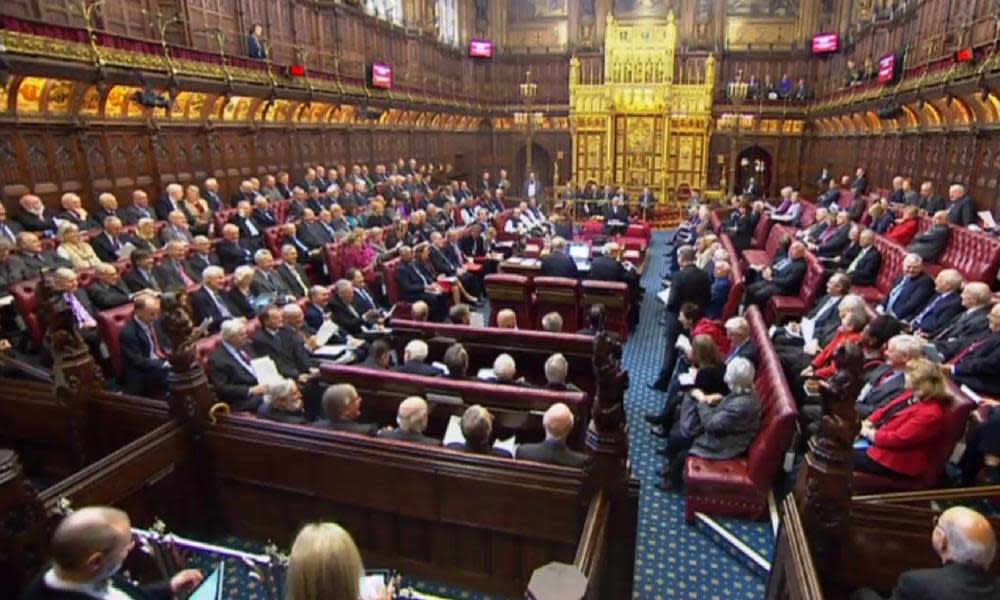Brexit bill: government suffers Lords defeat on leaving customs union

Theresa May has suffered an embarrassing defeat in the House of Lords over the issue of Britain’s membership of the customs union, increasing pressure on the government to reopen the issue.
An amendment to the EU withdrawal bill tabled by crossbencher Lord Kerr, and backed by several senior Conservatives, as well as Labour and the Lib Dems, was passed by a 348 votes to 225 – a majority of 123.
The government suffered a significant rebellion, with 24 Conservatives, including former ministers Lord Patten, Lord Heseltine and Lord Willetts, backing the amendment.
The debate on the government’s key piece of Brexit legislation, in a packed chamber, was watched by the shadow Brexit secretary, Keir Starmer. Afterwards, he said: “The passing of this cross-party amendment is an important step forward. Theresa May must now listen to the growing chorus of voices who are urging her to drop her red line on a customs union and rethink her approach.”
Explaining why he believed a customs union was so important, Kerr underlined the difficulty of replacing the UK’s trade with the EU with new deals with other countries.
“Looking further afield is well worth doing, but it will be very hard not to see a fall in overall exports if our trade with the EU is made more complicated, and it will be much more complicated if we leave the customs union. We must try to limit the damage of our nearest, because closest, market,” he said.
The amendment would commit the government to report to parliament “outlining the steps” it had taken, to secure “an arrangement which enables the UK to continue participating in a customs union with the European Union”.
A source from the Department for Exiting the European Union (DexEU) had earlier stressed that the government would not keep the UK in a customs union.
But opposition peers hoped that a hefty defeat could strengthen the hand of pro-customs union Conservative MPs, who have said they plan to force the issue in the Commons.
Once the Lords has amended the bill, it will be returned to the House of Commons, which will decide whether to accept the changes, or refer them back to peers, in a process known as “ping pong”.
Separately, Labour peers were expecting the government to signal a climbdown over the separate issue of the UK adopting EU rules on clinical trials.
Ministers were expected to accept the substance of an amendment tabled by crossbench peer Lord Patel, which would ensure EU clinical trial regulations – which have not yet come into force – were enacted in UK law.
The rules are aimed at streamlining clinical trials across the EU, allowing drugs firms to submit a single cross-EU application – and making it easier for pharmaceutical companies to conduct cross-border trials.
The EU withdrawal bill transfers EU law on to the UK statute book in preparation for Brexit – and grants the government sweeping powers to tweak it in the process.
The government was also expecting to lose a later vote, limiting ministers’ powers to downgrade protections in key areas including the labour market and the environment without consulting parliament.

 Yahoo News
Yahoo News 
